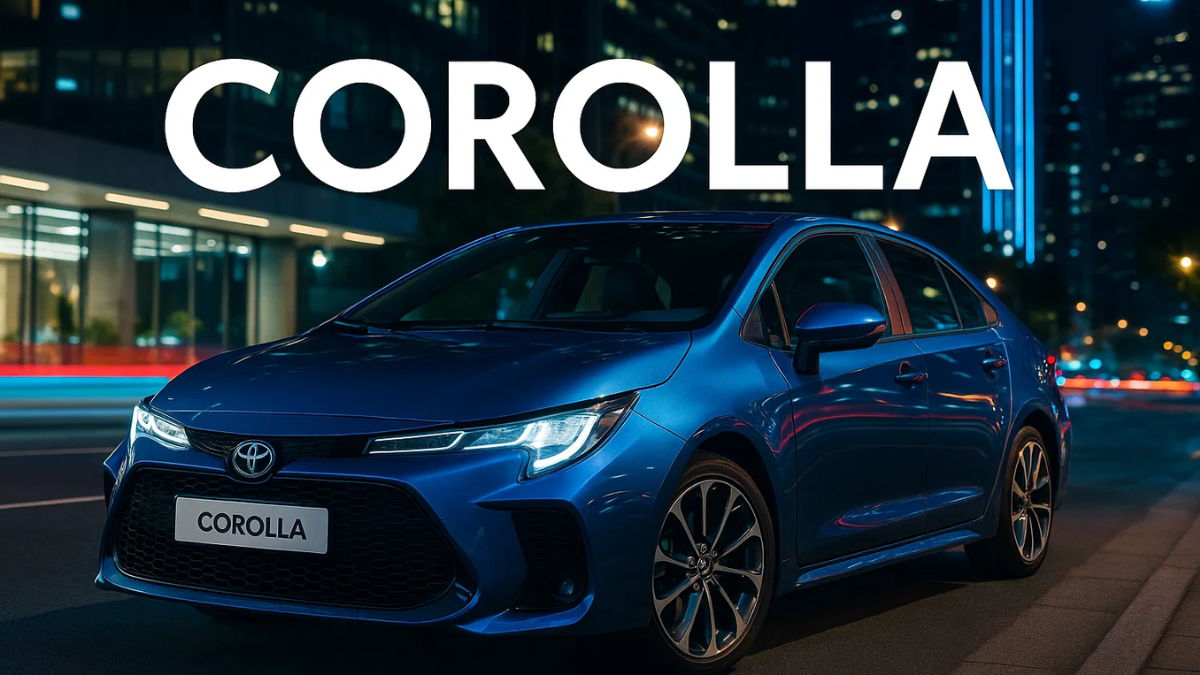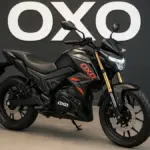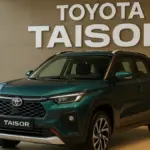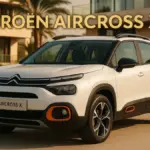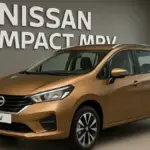The Toyota Corolla is not just another car—it is a global icon. Since its debut in 1966, the Corolla has become the best-selling car in the world, with more than 50 million units sold across 150+ countries. Known for its unmatched reliability, affordability, and practicality, the Corolla has earned the trust of generations of drivers.
Over the years, the Corolla has evolved from a simple compact sedan into a versatile lineup that includes sedans, hatchbacks, and hybrids, offering something for everyone. In this guide, we’ll take a deep dive into the history, design, features, performance, safety, trims, and comparisons of the Toyota Corolla, explaining why it remains one of the strongest choices in the global automotive market.
History and Evolution of the Toyota Corolla
Origins in the 1960s
Toyota introduced the Corolla in 1966 as a compact, fuel-efficient, and affordable car for families. Within just eight years, it became the world’s best-selling car, a title it has maintained for decades.
Generational Growth
The Corolla has seen 12 generations, each bringing technological advancements and design improvements:
- 1st–4th Generations (1966–1987): Simple, reliable, and economical compact sedans.
- 5th–8th Generations (1987–2002): Modernized with improved safety and comfort.
- 9th–11th Generations (2002–2018): Expanded global presence, with more refined styling.
- 12th Generation (2019–Present): Built on Toyota’s TNGA platform, offering hybrid options, bold styling, and advanced safety tech.
The Corolla’s long history reflects its ability to adapt to changing consumer demands while staying true to its core values.
Exterior Design and Styling
Modern and Dynamic Look
The latest Toyota Corolla has a sleek and aerodynamic design, reflecting Toyota’s shift toward sportier, youthful styling:
- Aggressive front grille with chrome or black accents.
- Sharp LED headlights and daytime running lights.
- Sculpted body lines for a bold and modern presence.
Body Styles
The Corolla is available in multiple body styles, depending on the market:
- Sedan: Classic choice for families and professionals.
- Hatchback: Sportier and more compact, appealing to younger drivers.
- Touring Sports (Wagon): Practical option in Europe for families needing more cargo space.
The variety of body styles ensures the Corolla appeals to different lifestyles and preferences.
Interior and Comfort
Cabin Space
The Corolla offers a comfortable cabin for five passengers, designed with practicality in mind.
- Supportive front seats with available SofTex leather.
- Spacious rear seating with decent legroom.
- Smart use of materials, blending soft-touch surfaces with durable plastics.
Cargo Capacity
- Sedan: Offers a roomy trunk with enough space for luggage or groceries.
- Hatchback: Flexible cargo area with fold-flat rear seats for added utility.
- Hybrid models: Battery placement minimizes cargo impact.
Technology and Infotainment
- Standard 8-inch touchscreen infotainment system.
- Apple CarPlay, Android Auto, and Amazon Alexa integration.
- Available premium JBL audio system.
- Wireless charging and multiple USB ports.
The Corolla’s interior design focuses on comfort, connectivity, and everyday usability.
Engine and Performance
Gasoline Engines
The Corolla offers a range of engines depending on the market:
- 1.8-liter 4-cylinder producing around 139 hp.
- 2.0-liter Dynamic Force 4-cylinder with 169 hp for more spirited driving.
- Transmission options: 6-speed manual or CVT automatic.
Hybrid Powertrain
The Corolla Hybrid combines a 1.8-liter engine with electric motors for a combined output of 121 hp.
- Fuel Economy: Around 52 mpg combined, making it one of the most efficient compact sedans.
- Smooth, quiet driving experience with regenerative braking.
Driving Dynamics
- Built on Toyota’s TNGA platform, improving handling and stability.
- Responsive steering and composed ride quality.
- Sport trims (like SE and XSE) offer tighter suspension tuning for added fun.
The Corolla isn’t a performance car, but it delivers a balanced and efficient driving experience suitable for daily use.
Fuel Efficiency
One of the Corolla’s strongest points is fuel economy:
- Gasoline models: Average 30–38 mpg combined depending on engine and transmission.
- Hybrid models: Up to 52 mpg combined, competing with hybrid leaders like the Honda Insight.
This makes the Corolla one of the most economical cars in its segment.
Safety Features
Toyota Safety Sense 2.0 (Standard)
All Corolla models come equipped with Toyota’s advanced safety suite:
- Pre-Collision System with Pedestrian Detection
- Lane Departure Alert with Steering Assist
- Dynamic Radar Cruise Control
- Lane Tracing Assist
- Automatic High Beams
- Road Sign Assist
Additional Safety Options
- Blind Spot Monitor with Rear Cross-Traffic Alert
- Rear Parking Sensors
- Adaptive Front Lighting System
These safety features help the Corolla consistently earn top safety ratings from IIHS and NHTSA.
Trims and Variants
Sedan Trims (U.S. Market Example)
- L: Basic features, affordable price point.
- LE: Adds more comfort and tech.
- XLE: Premium trim with luxury touches.
- SE: Sportier trim with 2.0L engine.
- XSE: Fully loaded sporty model.
- Hybrid LE: Efficiency-focused hybrid trim.
Hatchback Trims
- SE: Sporty base hatchback.
- XSE: Premium hatchback with sport styling and tech.
With a wide variety of trims, the Corolla lineup ensures there is a version for every type of driver.
Toyota Corolla vs Competitors
Corolla vs Honda Civic
- Civic: More powerful engines and sportier handling.
- Corolla: Better reliability record and higher fuel economy.
Corolla vs Hyundai Elantra
- Elantra: More futuristic design.
- Corolla: Proven durability and hybrid option.
Corolla vs Mazda 3
- Mazda 3: More premium interior.
- Corolla: Better practicality and affordability.
Corolla vs Nissan Sentra
- Sentra: Competitive pricing.
- Corolla: Better resale value and hybrid availability.
Pros and Cons
Pros
- Legendary reliability and resale value
- Excellent fuel economy, especially in hybrid models
- Wide variety of trims and body styles
- Standard Toyota Safety Sense features
- Comfortable and practical interior
Cons
- Base engine feels underpowered compared to rivals
- Infotainment system not as advanced as competitors’
- Rear seat space tighter than some rivals (like Honda Civic)
Pricing and Value
The Corolla offers strong value for its class:
- Gasoline Sedan: Starting around $22,000 USD.
- Hybrid Sedan: Starting around $24,000 USD.
- Hatchback: Starting around $23,000 USD.
The Corolla also holds its value better than most rivals, making it a smart long-term investment.
Future of the Toyota Corolla
Toyota continues to innovate with the Corolla by:
- Expanding hybrid options in global markets.
- Enhancing infotainment and connectivity.
- Potentially introducing electric versions in the future to align with Toyota’s carbon-neutral goals.
The Corolla remains a cornerstone of Toyota’s lineup and will likely remain a best-seller for years to come.
Conclusion
The Toyota Corolla is more than just a car—it’s a symbol of reliability, practicality, and value. With its efficient engines, hybrid technology, modern design, advanced safety features, and variety of trims, the Corolla appeals to first-time buyers, families, commuters, and eco-conscious drivers alike.
It continues to uphold its legacy as the world’s best-selling car, offering an unmatched blend of affordability, efficiency, and trustworthiness. For anyone in the market for a compact car, the Toyota Corolla remains a top recommendation.

